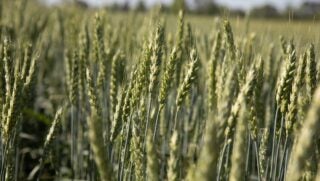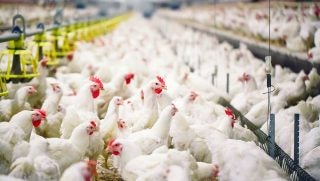We’ve been standing atop our future this whole time. Many of us knew that already, that our farm soil is among the most important parts of crop yield and global food security, especially with growing concerns over climate change.
New research out of Michigan State University, led by MSU Foundation Professor Bruno Basso and published in Agricultural and Environmental Letters, is the first of its kind to provide critical insight to the importance of soil in managing risks associated with climate change.
“The long-term sustainability of agricultural systems strongly depends on how we use soil,” Basso said. “This research proves that with the application of innovation through better soil management, we’re one step closer to preserving our food supply and mitigating the effect that climate change and global warming has on our lives.”
By learning how to scientifically harness, protect and improve soil’s health, Basso’s findings prove that crop yields can continue at current production levels or even improve — especially if coupled with adaptive farming practices.
“Up until now, research hasn’t accounted for what soil gives back to the cycle of climate change, and it is arguably the most critical resource to adapt to mitigate its effects,” Basso said. “Ultimately, soil is the ‘home’ of the plants. If we aren’t caring for the soil, plants and crops are unsheltered and left to deal with climate change on their own.”
The research
Basso executed a series of models in Tanzania, Brazil, Argentina, the Netherlands, France, the United States, and Australia to test soil’s reactions to changes in temperature and carbon dioxide levels by analyzing soil organic carbon and nitrogen levels.
What the researchers found was that carbon dioxide compensated for the climate-caused yield losses because it acted as a natural fertilizer to help the crops grow. But when soil organic carbon losses were included in the analysis, the increased carbon dioxide in the atmosphere was not sufficient to prevent yield losses.
“So, through agronomic management, which is ‘doing the right thing at the right time for your crops,’ soil quality and health can be improved.” Basso said.
Basso explained how farmers can practice better agronomic management to protect soil against the effects of climate change. This should include the use of cover crops, conservation tillage, adding organic carbon to soil, or by increasing yields through advanced genetics and agronomy.


